John Ruskin - Love's Meinie - Three Lectures on Greek and English Birds
Здесь есть возможность читать онлайн «John Ruskin - Love's Meinie - Three Lectures on Greek and English Birds» — ознакомительный отрывок электронной книги совершенно бесплатно, а после прочтения отрывка купить полную версию. В некоторых случаях можно слушать аудио, скачать через торрент в формате fb2 и присутствует краткое содержание. Издательство: Иностранный паблик, Жанр: Биология, literature_19, foreign_edu, foreign_antique, на английском языке. Описание произведения, (предисловие) а так же отзывы посетителей доступны на портале библиотеки ЛибКат.
- Название:Love's Meinie: Three Lectures on Greek and English Birds
- Автор:
- Издательство:Иностранный паблик
- Жанр:
- Год:неизвестен
- ISBN:нет данных
- Рейтинг книги:3 / 5. Голосов: 1
-
Избранное:Добавить в избранное
- Отзывы:
-
Ваша оценка:
- 60
- 1
- 2
- 3
- 4
- 5
Love's Meinie: Three Lectures on Greek and English Birds: краткое содержание, описание и аннотация
Предлагаем к чтению аннотацию, описание, краткое содержание или предисловие (зависит от того, что написал сам автор книги «Love's Meinie: Three Lectures on Greek and English Birds»). Если вы не нашли необходимую информацию о книге — напишите в комментариях, мы постараемся отыскать её.
Love's Meinie: Three Lectures on Greek and English Birds — читать онлайн ознакомительный отрывок
Ниже представлен текст книги, разбитый по страницам. Система сохранения места последней прочитанной страницы, позволяет с удобством читать онлайн бесплатно книгу «Love's Meinie: Three Lectures on Greek and English Birds», без необходимости каждый раз заново искать на чём Вы остановились. Поставьте закладку, и сможете в любой момент перейти на страницу, на которой закончили чтение.
Интервал:
Закладка:
Trop parfoisaient beau servise
Ciz oiselles que je vous devise.
Il chantaient un chant ytel
Com fussent angle esperitel.
We want a moment more of word-chasing to enjoy this. "Oiseau," as you know, comes from "avis;" but it had at this time got "oisel" for its singular number, of which the terminating "sel" confused itself with the "selle," from "ancilla" in domisella and demoiselle; and the feminine form "oiselle" thus snatched for itself some of the delightfulness belonging to the title of a young lady. Then note that "esperitel" does not here mean merely spiritual, (because all angels are spiritual) but an "angle esperitel" is an angel of the air. So that, in English, we could only express the meaning in some such fashion as this:—
They perfected all their service of love,
These maiden birds that I tell you of.
They sang such a song, so finished-fair,
As if they were angels, born of the air.
39. Such were the fancies, then, and the scenes, in which Englishmen took delight in Chaucer's time. England was then a simple country; we boasted, for the best kind of riches, our birds and trees, and our wives and children. We had now grown to be a rich one; and our first pleasure is in shooting our birds; but it has become too expensive for us to keep our trees. Lord Derby, whose crest is the eagle and child—you will find the northern name for it, the bird and bantling, made classical by Scott—is the first to propose that wood-birds should have no more nests. We must cut down all our trees, he says, that we may effectively use the steam-plow; and the effect of the steam-plow, I find by a recent article in the Cornhill Magazine , is that an English laborer must not any more have a nest, nor bantlings, neither; but may only expect to get on prosperously in life, if he be perfectly skillful, sober, and honest, and dispenses, at least until he is forty-five, with the "luxury of marriage."
40. Gentlemen, you may perhaps have heard me blamed for making no effort here to teach in the artisans' schools. But I can only say that, since the future life of the English laborer or artisan (summing the benefits to him of recent philosophy and economy) is to be passed in a country without angels and without birds, without prayers and without songs, without trees and without flowers, in a state of exemplary sobriety, and (extending the Catholic celibacy of the clergy into celibacy of the laity) in a state of dispensation with the luxury of marriage, I do not believe he will derive either profit or entertainment from lectures on the Fine Arts.
LECTURE II. 8 8 Delivered at Oxford, May 2d, 1873.
THE SWALLOW
41. We are to-day to take note of the form of a creature which gives us a singular example of the unity of what artists call beauty, with the fineness of mechanical structure, often mistaken for it. You cannot but have noticed how little, during the years of my past professorship, I have introduced any questions as to the nature of beauty. I avoided them, partly because they are treated of at length in my books; and partly because they are, in the last degree, unpractical. We are born to like or dislike certain aspects of things; nor could I, by any arguments, alter the defined tastes which you received at your birth, and which the surrounding circumstances of life have enforced, without any possibility of your voluntary resistance to them. And the result of those surrounding circumstances, to-day, is that most English youths would have more pleasure in looking at a locomotive than at a swallow; and that many English philosophers would suppose the pleasure so received to be through a new sense of beauty. But the meaning of the word "beauty" in the fine arts, and in classical literature, is properly restricted to those very qualities in which the locomotion of a swallow differs from that of an engine.
42. Not only from that of an engine; but also from that of animals in whose members the mechanism is so complex as to give them a resemblance to engines. The dart of the common house-fly, for instance, in full strength, is a more wonderful movement than that of a swallow. The mechanism of it is not only more minute, but the swiftness of the action so much greater, that the vibration of the wing is invisible. But though a school-boy might prefer the locomotive to the swallow, he would not carry his admiration of finely mechanical velocity into unqualified sympathy with the workmanship of the God of Ekron; and would generally suppose that flies were made only to be food for the more graceful fly-catcher,—whose finer grace you will discover, upon reflection, to be owing to the very moderation and simplicity of its structure, and to the subduing of that infinitude of joints, claws, tissues, veins, and fibers which inconceivably vibrate in the microscopic 9 9 I call it so because the members and action of it cannot be seen with the unaided eye.
creature's motion, to a quite intelligible and simple balance of rounded body upon edged plume, maintained not without visible, and sometimes fatigued, exertion, and raising the lower creature into fellowship with the volition and the virtue of humanity.
43. With the virtue, I say, in an exceedingly qualified sense; meaning rather the strength and art displayed in overcoming difficulties, than any distinct morality of disposition. The bird has kindly and homely qualities; but its principal "virtue" for us , is its being an incarnate voracity, and that it moves as a consuming and cleansing power. You sometimes hear it said of a humane person that they would not kill a fly: from 700 to 1,000 flies a day are a moderate allowance for a baby swallow.
44. Perhaps, as I say this, it may occur to some of you to think, for the first time, of the reason of the bird's name. For it is very interesting, as a piece of language study, to consider the different power on our minds,—nay, the different sweetness to the ear,—which, from association, these same two syllables receive, when we read them as a noun, or as a verb. Also, the word is a curious instance of the traps which are continually open for rash etymologists. At first, nothing would appear more natural than that the name should have been given to the bird from its reckless function of devouring. But if you look to your Johnson, you will find, to your better satisfaction, that the name means "bird of porticos," or porches, from the Gothic "swale;" "subdivale,"—so that he goes back in thought as far as Virgil's, "Et nunc porticibus vacuis, nunc humida circum, stagna sonat." Notice, in passing, how a simile of Virgil's, or any other great master's, will probably tell in two or more ways at once. Juturna is compared to the swallow, not merely as winding and turning swiftly in her chariot, but as being a water-nymph by birth,—"Stagnis quae, fluminibusque sonoris, praesidet." How many different creatures in one the swallow is by birth, as a Virgilian simile is many thoughts in one, it would take many more lectures than one to show you clearly; but I will indicate them with such rough sketch as is possible.
45. It belongs, as most of you know, to a family of birds called Fissirostres, or, literally, split-beaks. Split heads would be a better term, for it is the enormous width of mouth and power of gaping which the epithet is meant to express. A dull sermon, for instance, makes half the congregation "fissirostres." The bird, however, is most vigilant when its mouth is widest, for it opens as a net to catch whatever comes in its way,—hence the French, giving the whole family the more literal name, "Gobble-fly"—Gobe-mouche, extend the term to the open-mouthed and too acceptant appearance of a simpleton.
46. Partly in order to provide for this width of mouth, but more for the advantage in flight, the head of the swallow is rounded into a bullet shape, and sunk down on the shoulders, with no neck whatever between, so as to give nearly the aspect of a conical rifle bullet to the entire front of the body; and, indeed, the bird moves more like a bullet than an arrow—dependent on a certain impetus of weight rather than on sharp penetration of the air. I say dependent on, but I have not yet been able to trace distinct relation between the shapes of birds and their powers of flight. I suppose the form of the body is first determined by the general habits and food, and that nature can make any form she chooses volatile; only one point I think is always notable, that a complete master of the art of flight must be short-necked, so that he turns altogether, if he turns at all. You don't expect a swallow to look round a corner before he goes round it; he must take his chance. The main point is that he may be able to stop himself, and turn, in a moment.
Читать дальшеИнтервал:
Закладка:
Похожие книги на «Love's Meinie: Three Lectures on Greek and English Birds»
Представляем Вашему вниманию похожие книги на «Love's Meinie: Three Lectures on Greek and English Birds» списком для выбора. Мы отобрали схожую по названию и смыслу литературу в надежде предоставить читателям больше вариантов отыскать новые, интересные, ещё непрочитанные произведения.
Обсуждение, отзывы о книге «Love's Meinie: Three Lectures on Greek and English Birds» и просто собственные мнения читателей. Оставьте ваши комментарии, напишите, что Вы думаете о произведении, его смысле или главных героях. Укажите что конкретно понравилось, а что нет, и почему Вы так считаете.
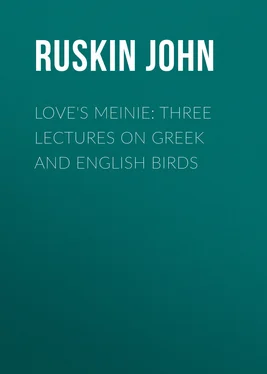
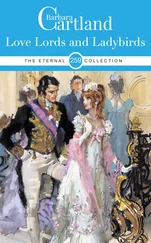

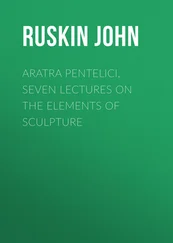

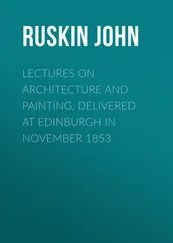


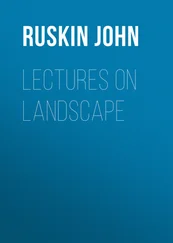

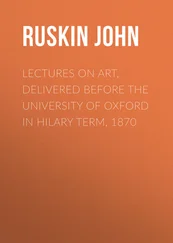

![John Bruce - The Lettsomian Lectures on Diseases and Disorders of the Heart and Arteries in Middle and Advanced Life [1900-1901]](/books/749387/john-bruce-the-lettsomian-lectures-on-diseases-and-disorders-of-the-heart-and-arteries-in-middle-and-advanced-life-1900-1901-thumb.webp)